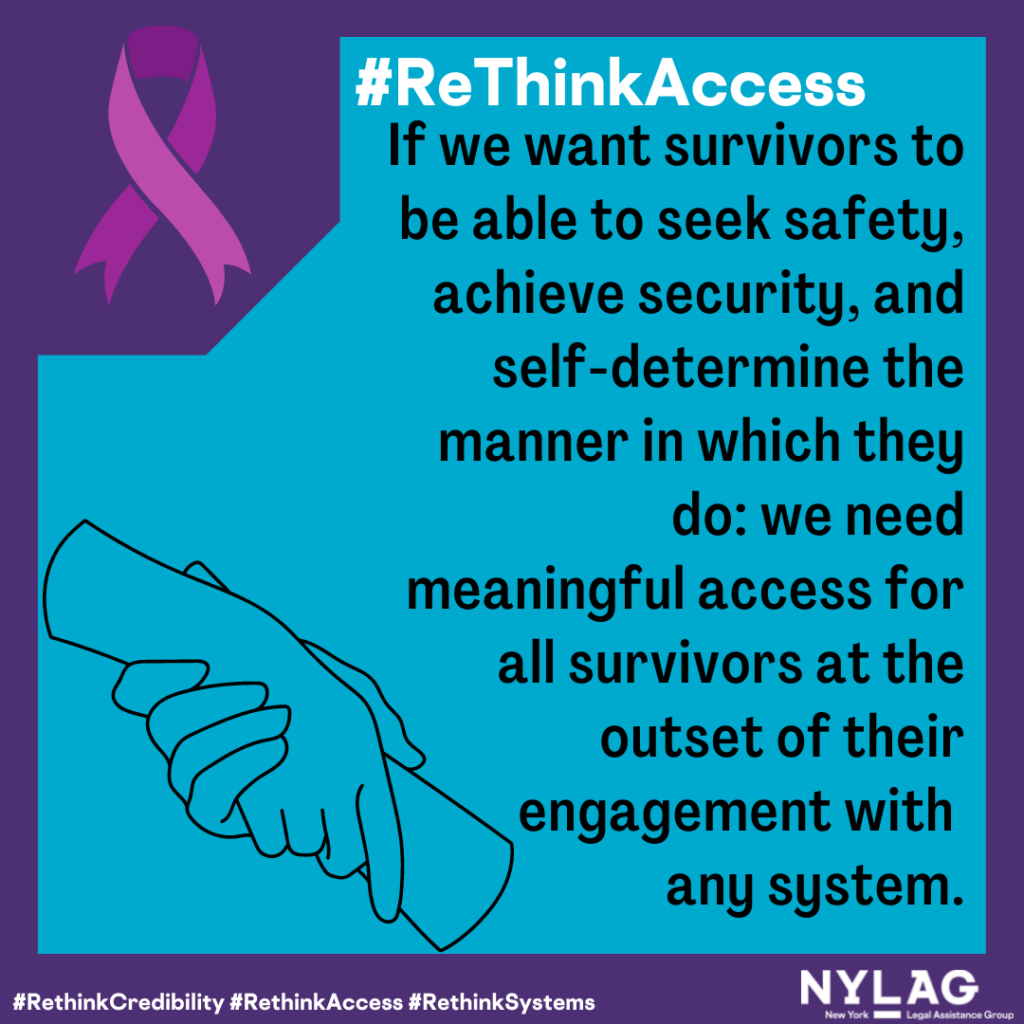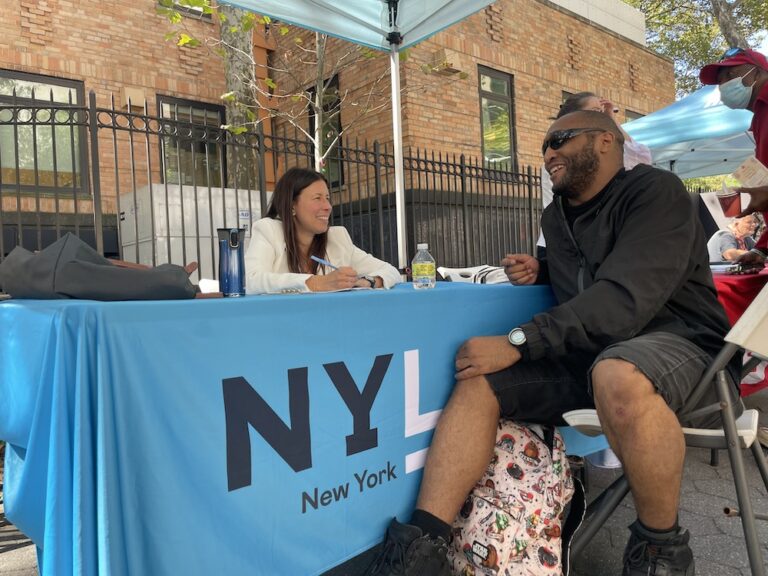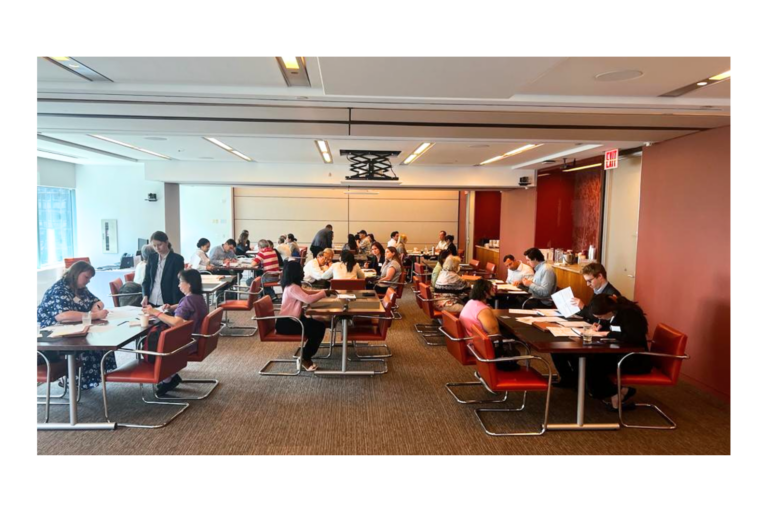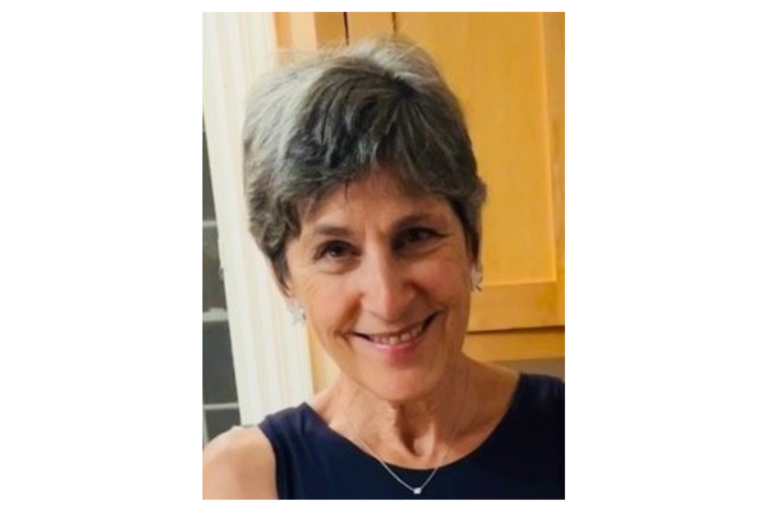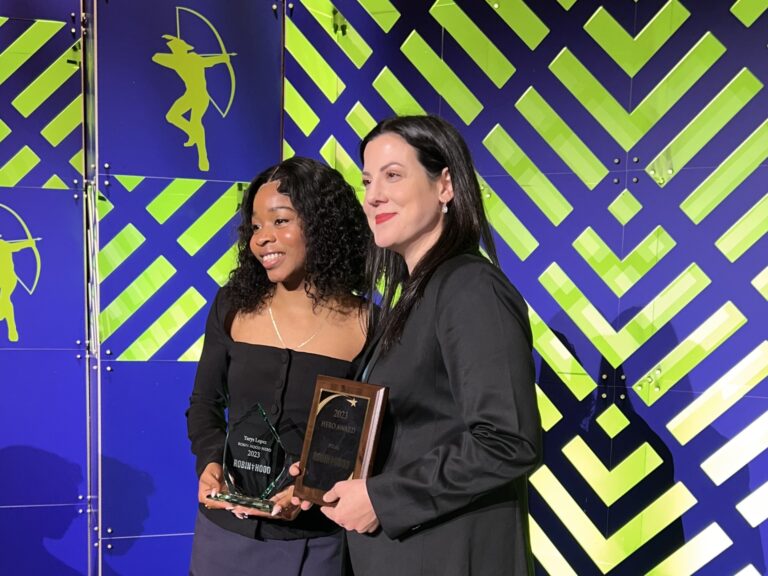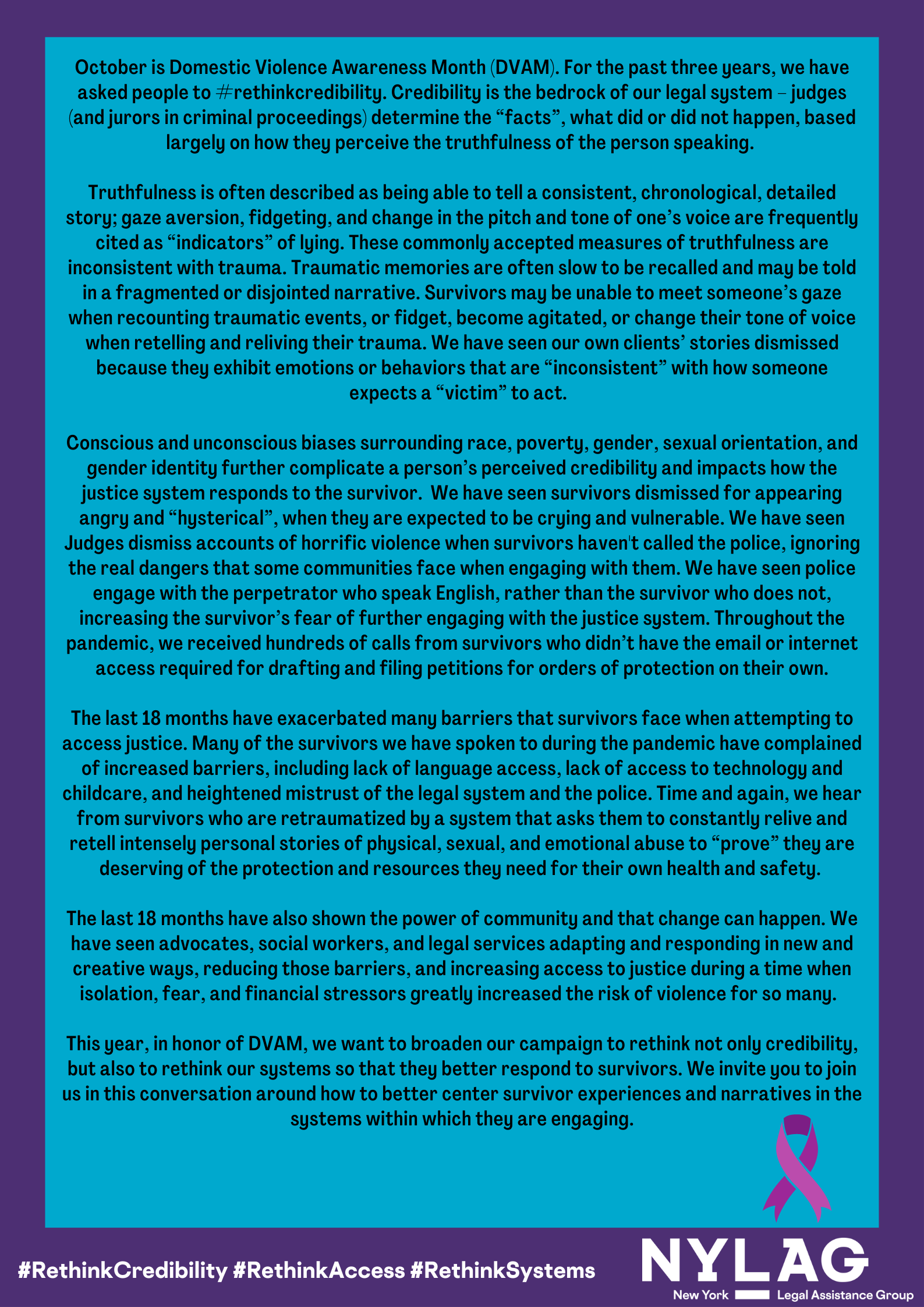
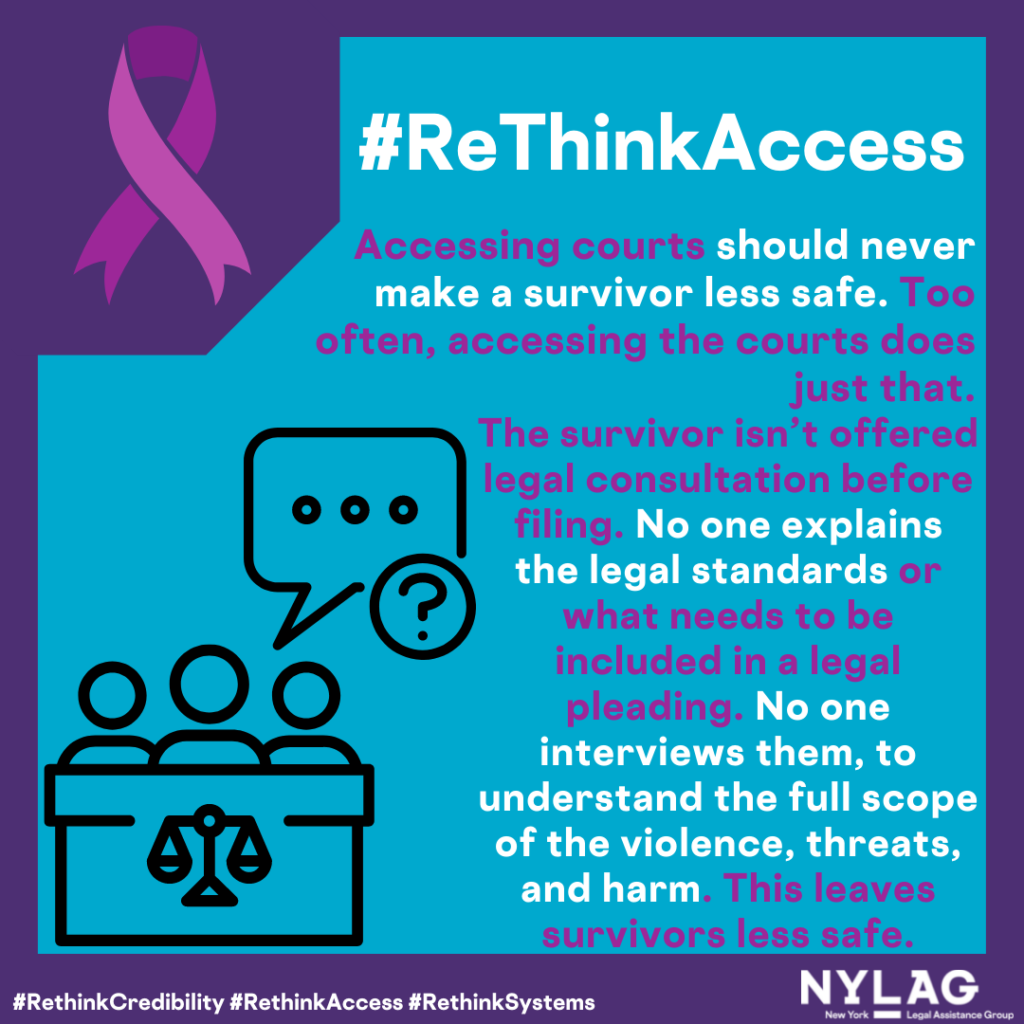
#Rethink Access. Accessing courts should never make a survivor less safe. Too often, accessing the courts does just that. Survivors need a consultation with a domestic violence trained lawyer who can safety plan with the survivor in advance of any filing. This can include talking about whether it is safe to file at that moment, and putting into place safety measures for themselves and their families whether they do or don’t proceed in court. We know that sometimes filing may not be safe, or may not be safe yet. Filing for an Order of Protection may necessitate numerous court appearances where a survivor will have to engage directly with the person who caused them harm. Individuals sometimes risk exposing their newly confidential address; stalking, threats, or harm before, during or after court appearances; or retaliatory filings for custody, child support, or even an Order of Protection. Survivors should be able to fully understand and weigh the risks of engaging with the court system before filing. They should understand what safety resources there are before filing, to ensure if they do file, they are protected. The right of access to counsel must include a legal consultation prior to filing.
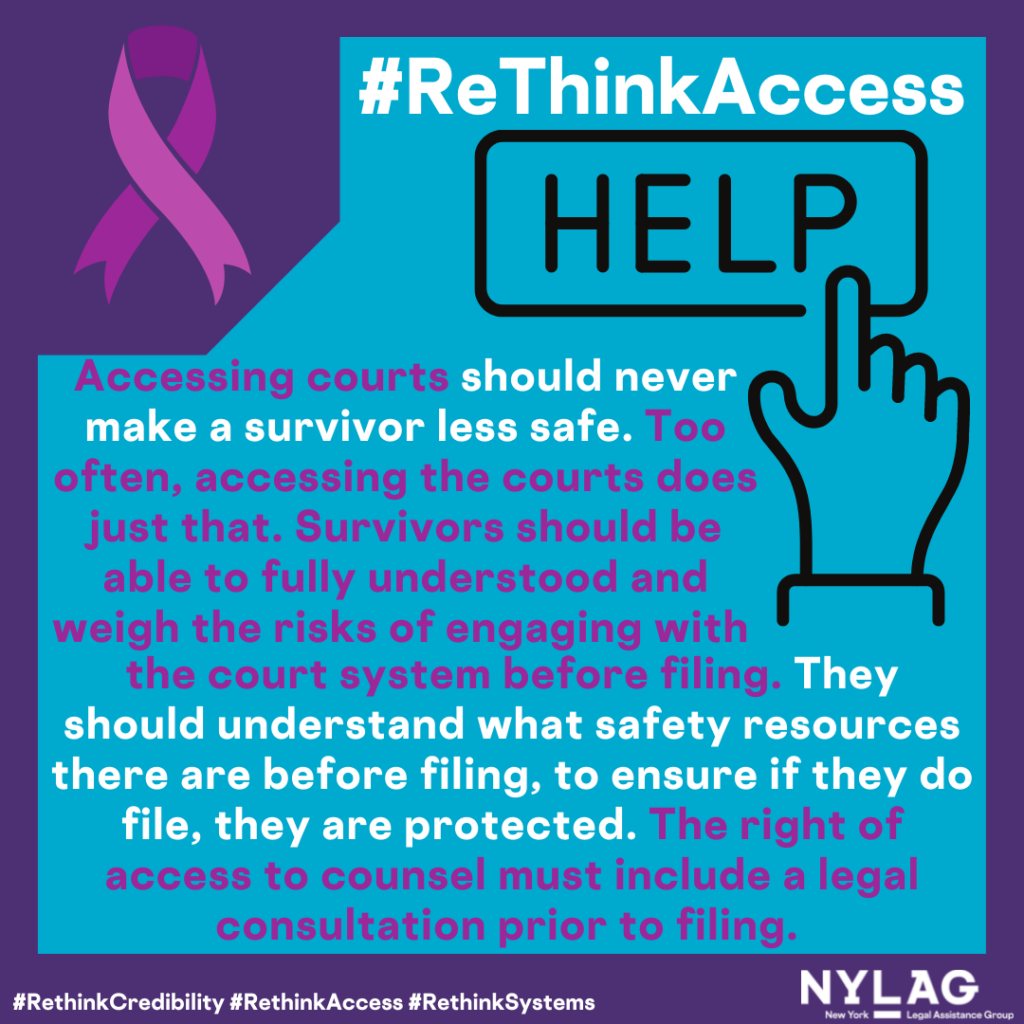
#Rethink Access. Accessing courts should never make a survivor less safe. It doesn’t need to. Since March of 2020, NYLAG has been providing legal consultations, individualized safety planning, and legal services in drafting and filing family offense petitions for survivors seeking Orders of Protection. NYLAG attorneys, volunteers, and legal interns provided safety planning and information about the legal process. At times, after safety planning, survivors felt that the pursuing the order of protection would make them less safe. For those who wanted to file, NYLAG obtained a detailed history through trauma informed interviewing, drafted petitions which detailed the necessary elements, and requested the proper relief, filed the application, and prepared the survivor for their appearance. NYLAG assisted over 750 survivors since March 2020. Every person we helped who decided to proceed in court, obtained an order of protection.

As NYLAG senior staff attorney Victoria Goodlof says, “Empowering a survivor of domestic violence doesn’t mean we send them to the courthouse to figure out what to do. Empowerment requires that a survivor has all of the information they need in order to decide what is best for them – since they are truly the experts in their own safety.” The right of access to counsel must include a legal consultation prior to filing. If our systems are going to provide survivors with meaningful access to court, that access must include the ability to speak with a DV attorney at the outset. The burden cannot and should not be on survivors to know the legal standards for relief, or what services exist to help them ensure that once served with paperwork, they are safe if the other side escalates their violence. The consequences for failing to provide this are too high. Simply getting to Court is not enough to ensure survivors are able access help and protection. If we want survivors to be able to seek safety, achieve security, and self-determine the manner in which they do: we need meaningful access for all survivors at the outset of their engagement with any system.
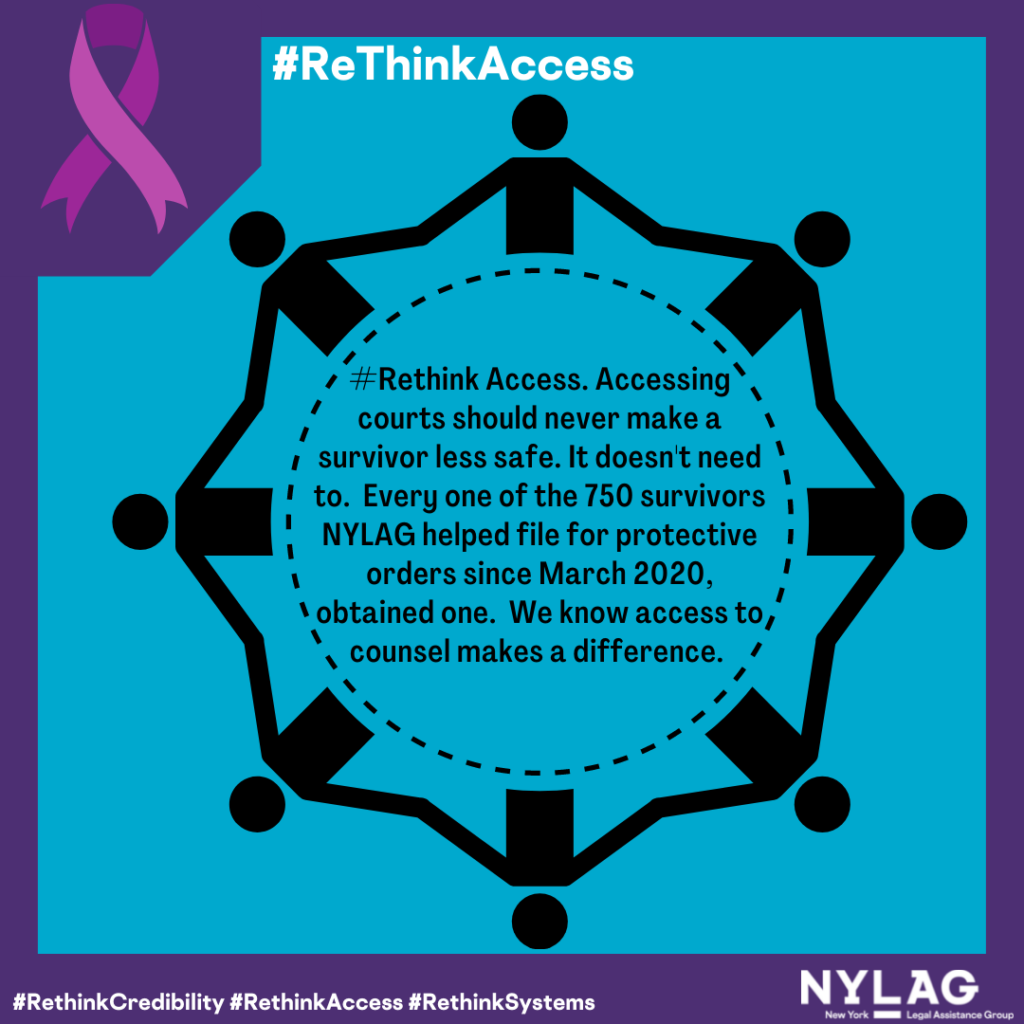
#RethinkSystems. Prior to the Coronavirus pandemic, litigants often spent hours waiting for their case to be called, spending only minutes before a jurist. Survivors would sit near their abuser, for hours on end, anxious, unsafe and nervous. Litigants had to miss full days of work and pay, and find child care. Since March 2020, the courts turned to a virtual model for filing documents and for court appearances. With virtual appearances, cases have been called at set times, litigants and counsel avoided unnecessary travel during a global pandemic, and survivors avoid unnecessary contact with the person who caused them harm. At the same time, many survivors faced new challenges. For those without access to technology or with a limited understanding of technology, survivors were unable to engage with the courts. Survivors were sometimes forced to allow their abuser into their homes via video, again making them feel unsafe. Survivors who required an interpreter often had proceedings delayed if interpreters were not able to be brought into a court appearance, or if there were technological difficulties with multiple people speaking simultaneously. Moving forward, even in the absence of public health concerns, it is essential that the Court continue to employ a hybrid model, with virtual appearances remaining available at the election of the litigants, increasing Court and judicial efficiency, while respecting the time and autonomy of the people appearing before it.
